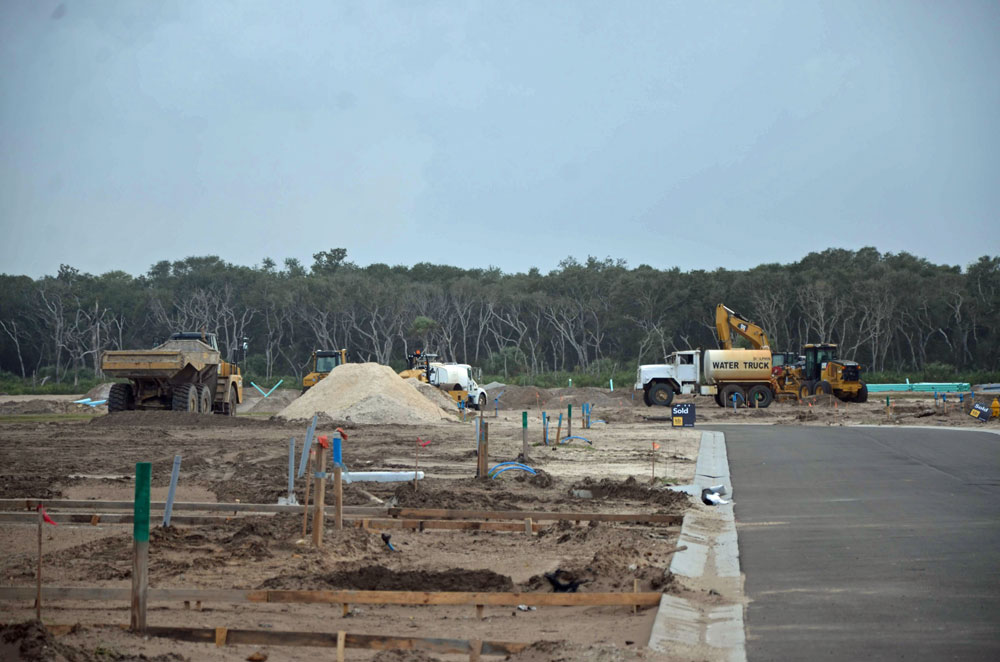On Tuesday, consumer advocates stated that Florida Power & Light’s (FPL) proposed rate increase of $9.8 billion is exorbitant and ought to be denied by state regulators.
The largest public utility in the state, FPL, which serves about 12 million people, requested in February that the Public Service Commission (PSC) set new rates for a four-year period when its current base rate agreement ends this year. [FPL is the sole electricity supplier in Flagler County and its cities, with very few exceptions.]
According to Food & Water Watch senior Florida organizer Brooke Ward, Floridians are experiencing a severe affordability issue. However, over the next four years, FPL plans to boost rates by about $10 billion. Let’s face it, increasing revenues is more important than infrastructure or dependability.
FPL should only receive about $105 million of the almost $10 billion it is requesting, the state Office of Public Counsel said the PSC in June, claiming that FPL would be overcharging customers if the planned rate hike were allowed.
The AARP is one of the groups that has been encouraging its members to get in touch with the PSC and urge them to oppose FPL’s planned rate increase. Months ago, the senior rights organization launched an online petition urging its roughly 3 million Florida members who also use FPL to request that the PSC reject the rate rise.
Zayne Smith, senior director for advocacy for AARP Florida, stated that elderly persons on fixed incomes will be the most affected by FPL’s proposed drastic hike in monthly electric costs. Additionally, FPL wants the nation’s highest return on investment. This has nothing to do with customer service. Customers will bear the cost as a result of corporate greed.
FPL claims in its appeal to the PSC that it will generate an 11.9% return on equity if its suggested rate hikes are accepted. That is the proportion of profit a utility company makes in relation to the sum of money that shareholders have invested. 9.5% is the national average.
According to a news release, residential users can use the calculator function atFPL.com/answers to determine how the plan will impact their specific bills. According to FPL, the average FPL customer in Florida would pay $151.99 per month by 2029, while the average for customers in the Panhandle and Peninsular Florida is $143.60 and $134.14 per month, respectively.
According to FPL officials, residential rates would increase by roughly 2.5 percent, keeping bills significantly lower than the national average and lower than those of many other Florida electric utilities.
Opponents, however, dispute such assertion. Rates and bills are different, according to Ward.
FPL clients will ultimately have to pay larger costs. What matters to families in Florida? She added that utilities in Florida can raise extra money from things like hurricane recovery expenses that occurred last year with Hurricanes Milton and Helene, in addition to the amount they included in their charge.
Additionally, in order to boost grid resilience and fortify long-term storm protection measures, the PSC authorized Storm Protection Plan Agreements for FPL, Duke Energy Florida, Tampa Electric Co., and Florida Public Utilities Co. in May of this year.
The Public Service Commission should be renamed the Utility Service Commission, according to Tampa Democratic U.S. Rep. Kathy Castor, ranking member on the House Energy and Commerce Committee, because it primarily serves electric utilities rather than the general public.
Democratic MPs are not the only ones who are unhappy with the PSC.
Late last year, Justice Carlos Mu iz of the Florida Supreme Court criticized the PSC for failing to present sufficient evidence to support an increase in public electricity rates. According to the News Service of Florida, he made those comments following the Supreme Court’s September 2023 decision that the PSC had failed to provide sufficient justification for approving a settlement that raised FPL’s base power rates and mandated a new explanation.
During the 2025 legislative session, Republican state senator Don Gaetz of the Panhandle presented a bill (SB 354) that would have mandated that the PSC become far more open about its operations.
According to its provisions, the agency must maintain the return on equity for public utilities as close to the risk-free rate of return as feasible, provide sufficient justification for its decisions when issuing orders, and submit an annual report on public utility rates that includes benchmarking and analysis on economics, cost impacts, return on equity, and executive compensation.
The bill failed to move forward after passing one Senate committee. According to Politico, Gaetz said that the public utilities had killed the measure.
On August 11, the PSC will start holding public hearings to discuss the rate hike. The fall occurs when the ultimate decision is anticipated.
Florida’s Mitch Perry The Phoenix












